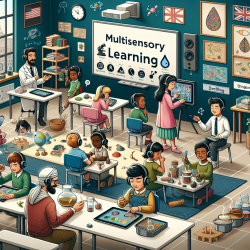One of the primary takeaways from the research is the importance of understanding and mitigating external pressures. In primate conservation, anthropogenic pressures such as habitat loss, hunting, and illegal trade are significant threats. Similarly, online therapists must be aware of external factors that can impact their practice, such as technological advancements, regulatory changes, and socio-economic factors affecting their clients. By staying informed and adapting to these changes, therapists can ensure their services remain relevant and effective.
Another key outcome is the emphasis on community involvement and local approaches. The research highlights the success of community-managed forests and local conservation efforts in preserving primate habitats. Online therapists can apply this principle by fostering a strong sense of community among their clients. Creating support groups, forums, and interactive sessions can help clients feel more connected and supported, leading to better therapeutic outcomes.
The research also underscores the importance of continuous monitoring and data collection. In conservation, tracking primate populations and habitat changes is crucial for effective management. Similarly, online therapists should regularly assess their clients' progress and adjust their therapeutic approaches accordingly. Utilizing digital tools for tracking and monitoring can provide valuable insights and help in tailoring interventions to meet individual needs.
Moreover, the research advocates for integrating sustainable practices and long-term planning. Conservation efforts that include sustainable land-use planning and maintenance of biodiversity are more likely to succeed. For online therapists, this translates to adopting sustainable practices such as ongoing professional development, staying updated with the latest research, and investing in robust digital infrastructure to support long-term service delivery.
Finally, the research highlights the role of international collaboration and public awareness in achieving conservation goals. Online therapists can benefit from collaborating with other professionals, participating in professional networks, and engaging in public awareness campaigns about mental health. This can help in sharing best practices, gaining new insights, and advocating for better mental health policies and resources.
In conclusion, the outcomes of the primate conservation research provide valuable lessons that can be adapted to enhance online therapy practices. By understanding external pressures, fostering community involvement, continuously monitoring progress, integrating sustainable practices, and collaborating with others, online therapists can improve their services and achieve better outcomes for their clients.
To read the original research paper, please follow this link: Primates in peril: the significance of Brazil, Madagascar, Indonesia and the Democratic Republic of the Congo for global primate conservation.










